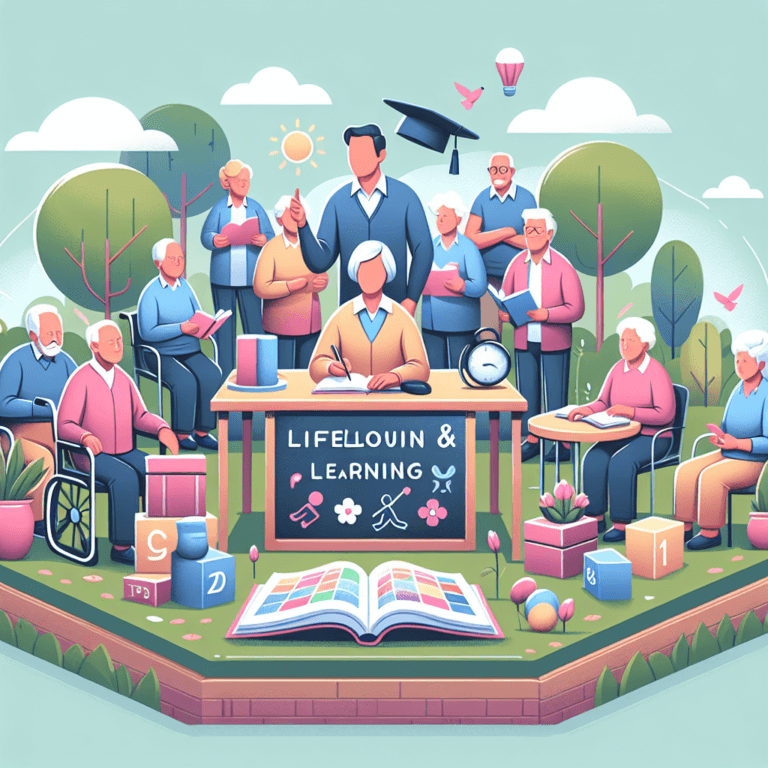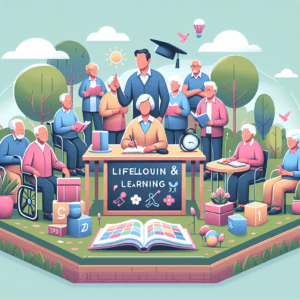Lifelong Learning: Programs Tailored for Senior Citizens
As populations age and the concept of retirement evolves, the importance of lifelong learning for senior citizens becomes increasingly evident. Educational programs designed specifically for older adults not only enrich their lives but also empower them to engage meaningfully with their communities. These programs cater to various interests and skill levels, promoting intellectual growth, social interaction, and overall well-being.
The Importance of Lifelong Learning for Seniors
Lifelong learning is essential for seniors for several reasons. It encourages cognitive engagement, which can help maintain mental acuity and stave off cognitive decline. Additionally, learning new skills can build confidence and foster a sense of accomplishment. Social interaction through educational pursuits can help combat feelings of isolation, enhancing emotional health. Engaging in lifelong learning also provides seniors with opportunities to share their knowledge and experiences, fostering intergenerational connections.
Types of Programs Available
Educational institutions, community centers, and nonprofit organizations have recognized the growing demand for tailored programs for seniors. These programs often include:
-
University Courses and Auditing Programs: Many universities offer senior citizens the chance to audit courses free or at a reduced rate. This allows individuals to learn alongside younger students without the pressure of grades, focusing solely on the joy of learning.
-
Workshops and Classes: Community centers often organize workshops that cover a wide variety of topics, from arts and crafts to technology and health workshops. These hands-on experiences provide seniors with practical skills while encouraging creative expression.
-
Online Learning Platforms: The rise of digital education has made it easier for seniors to participate in learning from home. Various online platforms offer courses on diverse subjects, ranging from history and literature to computer skills and cooking. Many of these courses cater to the learning pace and preferences of older adults.
-
Book Clubs and Discussion Groups: Engaging with literature and current events fosters critical thinking and stimulates conversation. Book clubs and discussion groups are excellent ways for seniors to stay mentally active while forming meaningful connections with peers.
-
Fitness and Wellness Programs: Many lifelong learning initiatives combine physical activity with education, offering classes in yoga, tai chi, and mindfulness. These programs not only promote physical well-being but also contribute to mental health by reducing stress and enhancing mood.
- Volunteer Opportunities: Volunteering can be a form of learning in itself. Many organizations offer training for volunteer roles, allowing seniors to share their expertise while acquiring new skills and knowledge in various fields.
Benefits of Lifelong Learning Programs
Participation in lifelong learning programs brings several benefits to seniors.
-
Cognitive Health: Engaging in challenging activities can help improve memory, problem-solving abilities, and critical thinking skills, all crucial for cognitive health as one ages.
-
Social Engagement: These programs often serve as a hub for socialization, reducing feelings of loneliness and isolation by providing opportunities for seniors to meet and interact with others who share their interests.
-
Empowerment: Gaining new skills instills a sense of empowerment and confidence among seniors. It enables them to keep up with societal changes, particularly in our technology-driven world.
- Personal Fulfillment: Lifelong learning allows seniors to pursue interests or hobbies they may not have had time for earlier in life, fostering satisfaction and joy.
Conclusion
Lifelong learning represents a valuable opportunity for senior citizens to enrich their lives and remain engaged in an ever-changing world. With the variety of tailored programs available, learning becomes not only an avenue for growth but also a means for social connection and emotional fulfillment. As society continues to recognize the importance of lifelong learning, it will undoubtedly play a crucial role in enhancing the quality of life for seniors. Embracing this journey of continuous education ensures that age truly does not limit one’s ability to learn, grow, and contribute to the community.







